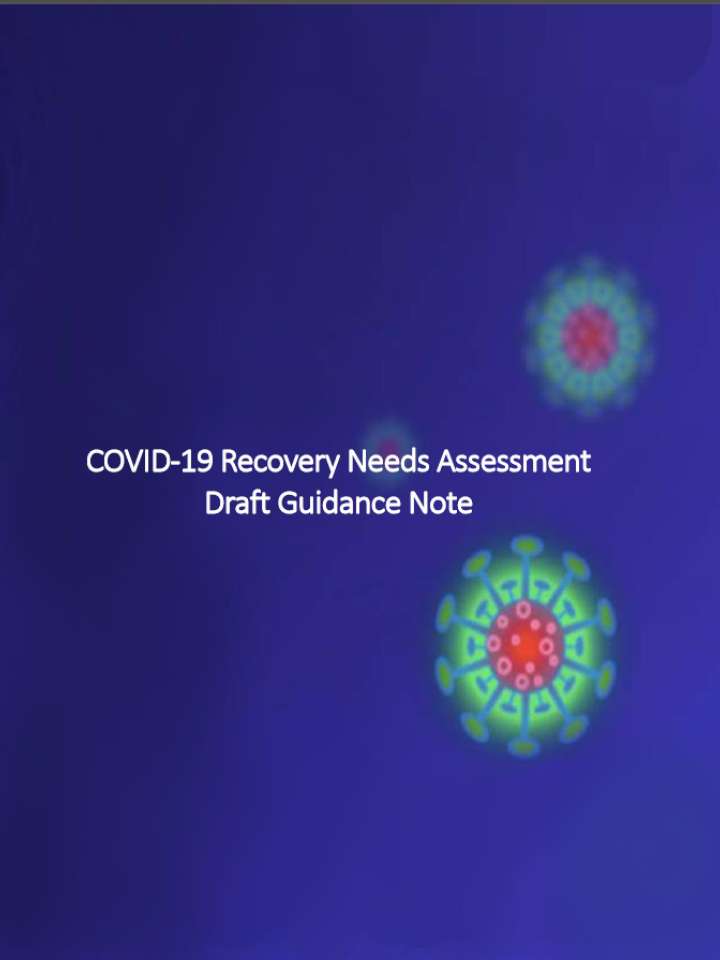COVID-19 Recovery Needs Assessment (CRNA) Draft Guidance Note
Covid-19 has led to unprecedented impacts on the economy, lives and livelihoods of nations, communities and individuals. This note sets out a methodology to assist governments to:
- Assess the overall socio-economic impact of the pandemic on the people including the various vulnerable groups, as well as on services and production of goods and governance;
- Identify priority needs for affected households and critical sectors of the economy;
- Recommend institutional mechanisms and policy measures to be undertaken in support of the recovery, including measures in place to prevent and mitigate a crisis of similar nature in future.
The note builds on the experience of over 70 post-crisis assessments undertaken within the partnership between United Nations, World Bank Group, and European Union under the 2008 Joint Declaration on Post Crisis Assessment and Recovery Planning. The methodology draws from the Post-Disaster Needs Assessment and Recovery and Peacebuilding Assessment methodologies with greater flexibility and a simpler approach to assessing and planning quick response to the pandemic, including the need for ongoing preparedness and maintaining measures to reduce transmission risks when restoring production and services. This methodology builds on preexisting partnerships, brings in global expertise from across partners, does a macro, meso and micro level analysis and develops recovery needs with costs. By bringing in key stakeholders, such as the EU, WB and other MDBs, bilateral donors, and civil society, under a coordinated and government-owned process, the CRNA can ensure alignment of the development community behind one comprehensive government-wide strategy which can be converted to common planning and financing outcomes.
The methodology provides for the flexibility to tailor to the COVID-19 context and needs of individual countries, and where helpful can complement or build on relevant assessments already undertaken or in progress. The methodology aims to be both rapid and light, and achievable within a 3-4-week period.

